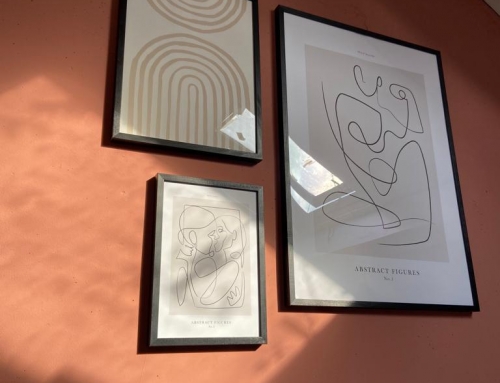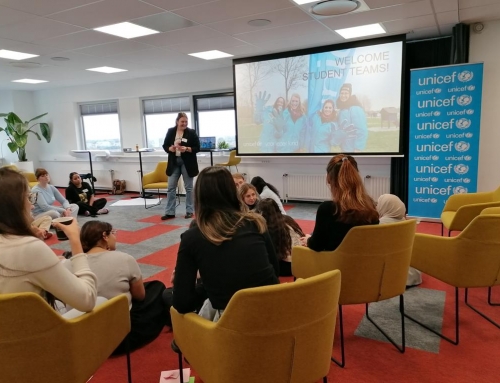Change; an act or process through which something becomes different. (Dictionary, n.d.)
Migration to another country, to a different culture is a major change in someone’s life. It is not just a move, you leave part of your family, your language, your environment and your culture. Migration is a complex transition because many changes are occurring at the same time.
There are roughly two types of families in the world. The I-oriented system, where the individual is central, and the we-oriented system, where the interests of the group are paramount. Geographically, you can state that families in Western societies mainly carry characteristics of the I-oriented system. Families in other countries, for example the Islamic states, are mainly organized according to the we-oriented system. Many migrants in the Netherlands come from we-oriented families and Dutch families are mainly focused on themselves. Therefore, an important consequence of migration from a we-oriented culture to the Netherlands is that the order of the large family system is seriously disrupted. (A Dije, 2015)
Important themes in the we-orientated system are observing authority, dependence and shaping family continuity. The survival of the family is paramount and everyone is equipped for this. Growing up as a child in an we culture is fundamentally different from growing up in an I culture. In a we culture, as a child you derive your strength and identity from the contribution you make to the system and not from your personal performance. In an I system, individual independence, self-fulfillment and privacy are paramount. Children are raised based on that autonomy thinking. “Autonomous thinking is to make our own interpretations rather than act on the purposes, beliefs, judgments, and feelings of others.” (Miner, 2016) Parents are usually the ones who are allowed to make decisions about the child. In we- orientated systems, the child is often raised by multiple caregivers, such as uncles, grandparents, or siblings. (A Dije, 2010)
This transition is an important cause of many problems within migrant families, and at the same time it is a blind spot for many Dutch people as for the migrants themselves. It is a fragile and stressful period that is even more difficult if migration is accompanied by violence and war traumas, as in the case with refugees.
We can link this back to the we- orientated and I- orientated systems. In we- orientated families, an indirect, covered style of communication is used. Words, metaphors and stories are used to raise emotional sensitive issues. Within I-oriented families, communication is open, explicit and direct. (Ende, 2002). Therefore, it is important that education systems realize this and are able to act upon this accordingly.
It is important we understand changes in different cultures to ensure we offer a safe and supportive environment in which children feel they belong. This will allow the last transition phase; reintegration to successfully occur.
To belong; To have a proper, appropriate, or suitable place. TO be naturally associated with something. To fit into a group naturally. (New Collegiate Dictionary, n.d.)
Our increasingly globalizing world, where cultural, ethnic and social backgrounds merge at all levels, naturally also influences education. Transition can be difficult when it is not a positive experience, education systems often become the last hope where children can gain a sense of belonging and unfortunately, promoting a sense of belonging is not a high priority in most schools. (Back, 2003) That is why it is important that environments with abundant diversity are used in a positive way, starting from a very young age to ensure the smooth integration of children.
Transition; the process or a period of changing from one state or condition to another. (Dictionary, n.d.)
Every family has life phase transitions: major events or major changes that affect the future. Examples of phase transitions is the transition to primary school, high school, the adolescence period from child to adult, marriage, birth, divorce, new job, moving house, illness and death. Some transitions are beautiful and positive, others are painful. A known anthropological concept that describes these transitions is; the ritual process: structure and anti- structure. (Turner, 1969) According to this theory, a transition takes place in three phases; the farewell, the liminal phase and the reintegration.
The goal is for migrant children to have a positive reintegration and for that to be a success we have to focus on the liminal phase. The farewell phase happens before migrating to the Netherlands. You say goodbye to the old situation, with loss, resentment or joy. This farewell is often accompanied by a ritual such as a graduation party, a bachelor party or funeral ceremony. You are going to make the step to the new situation.
The liminal phase
Liminal means threshold. The liminal phase is the phase in which there is a sense of loss and great uncertainty about the future. This is a very vulnerable phase that often receives too little attention. In this phase you are anxious and unsteady the old is no longer there and the new is not yet there. This phase is where the education system can play a major role in creating a safe and supportive environment. Children at school who feel vulnerable, excluded, or unsafe may become bored or act rebelliously out of powerlessness which then causes them to stay within this liminal phase.
It is important that the school can connect to something from the child’s context. If the school is not aware of this, and responds from its own frame of reference, it will only become more unsafe for the child. It is often thought that migrant children need social skills training, because they are not included, for example in group discussions and collaborative exercises. But research remains that they do not recognize the communication style that is being gaited, which makes it unsafe, they can no longer be empathetic and stop learning. (D’escury-Koenings, 1998).
I can relate this information I have gained to my previous experiences of migrating to England. I had always grown up receiving the international education curriculum where I knew the norms and value, rules and regulations. When moving to England my parents decided to put me into the British curriculum. In England it is a norm to stand up from your desks when a teacher walks in. This shows respect and manners within the education system. I was unaware of this as I had never had to do this before, I therefore immediately felt left out and ashamed.
References
Back (2003) A pedagogy of belonging
Retrieved 24 March 2020 from https://www.cycy-net.org/cyc-online/cycol-0303- belonging.html
Collot d’Escury- Koenings, A. Het blauwe boek ‘Denken over anderen, dat kunnen kleuters ook’. Rollenspelletjes voor kleuters, Pearson Assessment and Information, 1998.
Dictionary (n.d.) Change
Retrieved 24 March 2020 from https://www.dictionary.com/browse/change?s=t
Dictionary (n.d.) Transition
Retrieved 24 March 2020 from https://www.dictionary.com/browse/transition?s=ts
Ende, M. van den en A. Savenije, Zwijgen versus spreken, Geheimen als copingmechanisme bij biculturele adolscenten, in: Tijschrift voor systeemtherapie, 2002.
Miner (2016) What is autonomous thinking?
Retrieved 24 March 2020 from https://www.quora.com/What-is-autonomous-thinking
New Collegiate Dictionary (n.d.) To belong
Retrieved 24 March 2020 from https://www.cycy-net.org/cyc-online/cycol-0303- belonging.html
Tijn A Dije, K, ‘Ouderschap in een wij- systeem’, Tweede Alice van der Pas-lezing, Stichting INO, Utrect, 2000.
Tijn A Dije, K. en I. Zwaan, Beschermjassen, transculturele hulp aan families, Van Gorcum, 2007.
Turner, V.W. The ritual process: Structure and anti- structure, 1969.
Zwaan I., De afwezige vader bestaat niet, Promtheus Bert Bakker, 2013.
We can link this back to the we- orientated and I- orientated systems. In we- orientated families, an indirect, covered style of communication is used. Words, metaphors and stories are used to raise emotional sensitive issues. Within I-oriented families, communication is open, explicit and direct. (Ende, 2002). Therefore, it is important that education systems realize this and are able to act upon this accordingly.
It is important we understand changes in different cultures to ensure we offer a safe and supportive environment in which children feel they belong. This will allow the last transition phase; reintegration to successfully occur.





